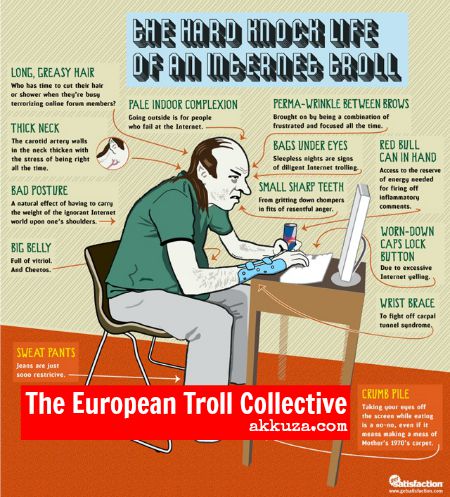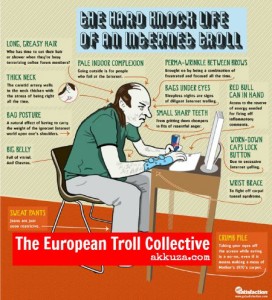It is a great mistake to suppose that the only writers who matter are those whom the educated in their saner moments can take seriously. There exists a subterranean world where pathological fantasies disguised as ideas are churned out by crooks and half-educated fanatics for the benefit of the ignorant and superstitious. There are times when this underworld emerges from the depths and suddenly fascinates, captures and dominates multitudes of usually sane and responsible people. – Warrant for Genocide, Norman Cohn.
The world can be one big lie. This has been a pet subject for many a philosopher. Maybe the world we see is just an illusion, maybe we are just parts of a dream, maybe we are an imperfect parallel universe. It all seems to hinge around the concept of perception – how we receive data and what we do it. What we see, what we sense and how we perceive it is crucial to defining the world we live in. The internet has had an immense impact not only in the immediate processing of information but also in redefining our understanding the realities (or fakeries) of the world that we inhabit.
In the nineties the term “global village” was very much the vogue. The information superhighway would cut distances drastically and you would know whenever a bomb exploded in Kandahar, whenever a weird tsumani struck the shores of Indonesia, whatever the latest military putsch was doing and you would know it instantly. Technology would be at the service of humanity giving us information at our fingertips. This urge for immediacy had existed for over a century by the 1990s. Just look at what Senator Depew had to say about the inauguration of the New York Pneumatic Postal Service in 1897:
This is the age of speed. Everything that makes for speed contributes to happiness and is a distinct gain to civilization. We are ahead of the old countries in almost every respect, but we have been behind in methods of communication within our cities. In New York this condition of communication has hitherto been barbarous. If the Greater New York is to be a success, quick communication is absolutely necessary. (see Wikipedia)
What humanity did not predict was that with the information superhighway came the empowerment of the masses. Nothing wrong with that per se but when the masses have no standard reference as to the type of information that should be disseminated we end up with a perversion of the truth. Multiple perversions actually. Information, we learnt, can be manipulated. It is not only the usual suspects popular among conspiracy theorists who are hard at work.
During the cold war the issue of propaganda was easily pinnable on the parties, the movements and the governments. In the post 9/11 world, navigating the information superhighway is not such an easy black and white matter. The sources of information are multiple and few are those who bother to verify the reliability. A whisper in a corner of the global village can gather enough momentum to be a tsunami of shrieks and yells within hours.
Which is where the trolls come in. J’accuse has often repeated the great Pratchett’s quote that “a lie can travel around the world before the truth has had time to put its boots on”. Internet trolls have found the medium perfect to spin their lies – just look at the frantic anti-immigrant spamming of the past few months. Trumped up figures, photoshopped images and reasoning that wouldn’t hold good in a kindergarten of moot courts.
The responsibility in this day and age lies among the citizens who deign themselves to be informed. The trolls can only be defeated by counter-trolling and by the positive action of more informed participants.
This blog has been committed to this kind of action for as long as it has existed and aims to continue to do so as long as it can. The truth, if we lie.


